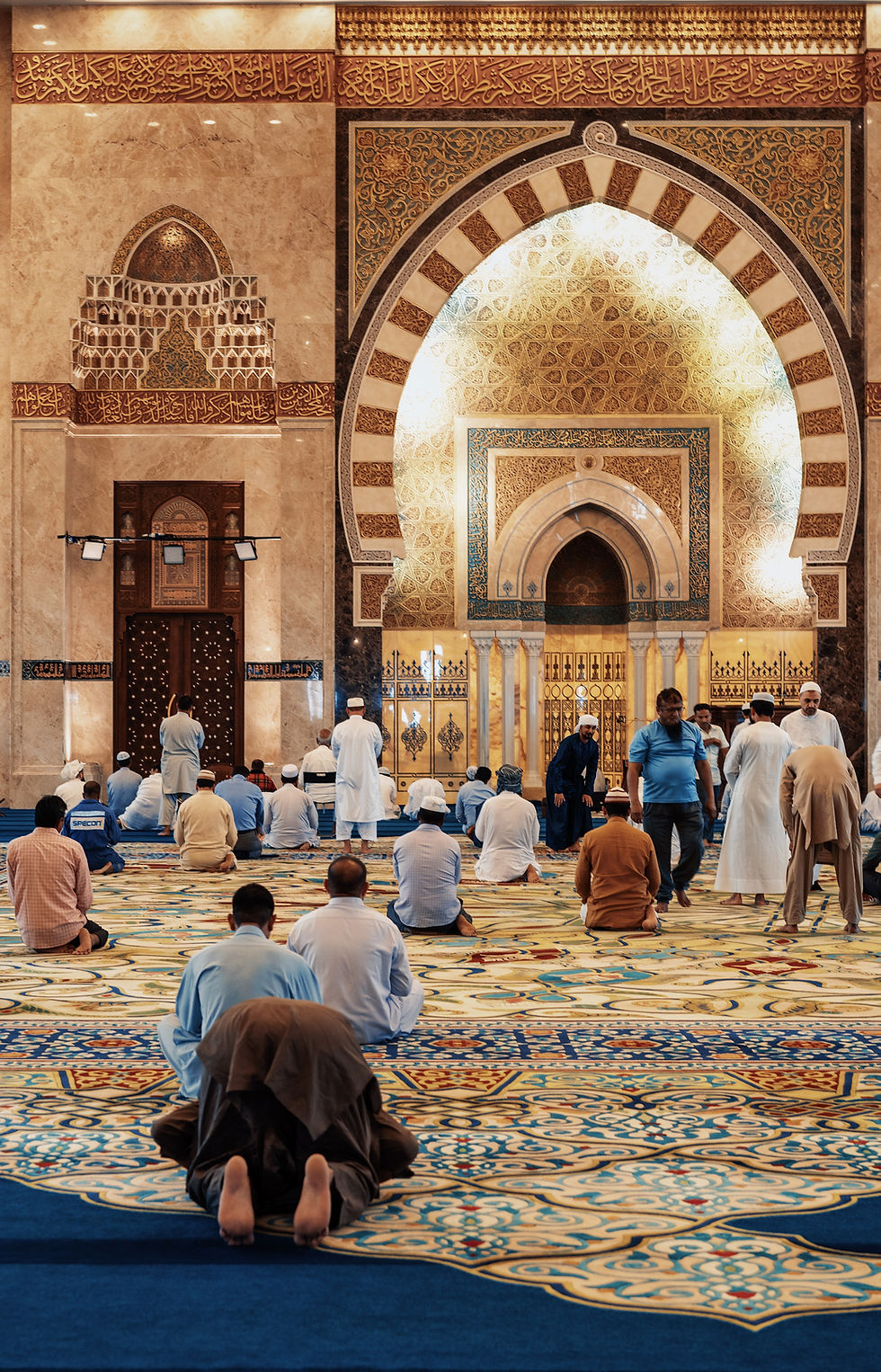
As the Muslim community worldwide prepares for the arrival of the first of the holiest three Islamic months: Rajab, Shaʿban and Ramadan, we are often overwhelmed in this fast-paced age as to how we can give these special months and moments their due right. Some are merely able to fulfill the obligation of fasting, reciting Qurʾan and praying during the month of Ramadan, all the while forsaking the special rank of other months and times during the Islamic calendar.
I am not writing this blog as a call to do more physical acts of worship per se, but rather to be content with whatever venue God has opened for you and me to seek and reach Him during these coming months. The stories in our Islamic lore abound of bandits and thieves who due to a single act of worship during the year, God transformed their entire condition, whence they became celebrated saints of Islam.
The relationship between the coming holy months of Rajab, Shaʿban and Ramadan have been eloquently described as ‘planting the seed’, ‘watering the soil’ and ‘reaping the fruits’. Of course, the Prophet Muhammad ﷺ had described this divinely ordained connection in the hadith: “Rajab is the month of God, Shaʿban is my month and Ramadan is the month of my community.” Thus, the testimony of faith, through which a human being may enter Islam, la ilāha illā Allāh (There is no god but God) and Muhammad Rasūlullāh (Muhammad is the messenger of God) is fully experienced during these three months.

Lā ilāha illā Allāh is what we seek to actualize and internalize during Rajab, a month which the Prophetﷺ has described using two – seemingly – opposing terms: al-asamm (the silent) and al-asabb (the overflowing). These twin wings of Rajab beautifully encompass the two realities inherent in this first part of the shahāda (testimony): la ilāha (there is no god) requires the silence and annihilation of all creation, whereas illā Allāh (but God) is the overflowing of light, goodness and being from the Divine Essence.
In the month of Shaʿban, which the prophet ﷺ has associated with himself ﷺ: “Shaʿban is my month,” one tastes the sweetness of Muhammad Rasūlullāh (Muhammad is the messenger of God), after affirming God’s oneness, uniqueness and singularity during Rajab. In turn, acknowledging God’s sovereignty by word is incomplete and imperfect without loving and honoring those whom He has elevated above all creation, most auspiciously the Prophet Muhammad ﷺ.
If Rajab and Shaʿban represent the two wings of the shahāda, then Ramadan is the month during which both parts come together in unison and perfect harmony in the life of the Muslim community. Just as God says in the Qurʾan: “He merged the two seas, they meet. Between them is a barzakh, they do not transgress [each other]” (55:55). Ramadan is this proverbial barzakh (isthmus) between Rajab and Shaʿban, not in a temporal sense since it comes last, but rather spiritually, as a marriage between the two parts of the shahāda in the heart of the Muslim community.

And so, as we prepare spiritually, physically and mentally for this special Divine season, many of us are wondering: “What acts of worship should I do and what should I ask for?” Muslim saints have long told their disciples that a pure relationship with God entails worshipping Him not seeking any particular need, but rather simply because He deserves our utmost love, worship and devotion.
Thus, sidi ʿAbd al-ʿAziz al-Dabbagh tells his student Ahmad al-Lamati in The Pure Gold that it is blameworthy to even worship God seeking His Nearness, since that assumes that we are the creators of our acts of worship, whereas God says: “And God has created you and whatever you do” (37:96). Instead, al-Dabbagh advises his disciple to worship God seeking no one but Him. This sentiment is reiterated by Abu Yazid al-Bistami who said: “I pity the worshipper who spends their life worshipping God not realizing that He created us and what we do.”
But how many of us are at this level of masters like al-Dabbagh and al-Bistami? If like me, you struggle to reap spiritual benefits from the months of Rajab and Shaʿban, much less give Ramadan its due, then please do not be disheartened by your past. Most importantly, if you have found a ‘burning bush’, a need or desire that you feel obliged to ask of God during these coming months, and which motivates you to fill your time with worship, do not let anyone doubt the sincerity of your intention.

In one of his celebrated Hikam (Aphorisms), Ibn ʿAtaʾ Allah states: “Anytime He facilitates your tongue to ask, then know that He wills to give you.” What is the importance of a ‘burning bush’ in the story of Prophet Musa, peace be upon him? Does it have any significance as mere matter in the grand scheme of God ordaining one of his prophets with a message? The importance of the ‘burning bush’ is that Musa, peace be upon him, needed light and warmth for his family. And that is precisely where he found God.
Any need you have right now, worldly or otherworldly, that motivates you to fully utilize your moments in the months of Rajab, Shaʿban and Ramadan then know that God is calling you to Him through it. Let that be your means to pray in the middle of the night, fast, recite Qurʾan, give charity and any other act of worship to which your heart feels inclined. For just as there are eight gates to paradise, each according to different acts of worship, so are there also different needs and dispositions to deliver us to God.
All our needs are worldly excuses for exceptional Divine Gifts. Acknowledging the need is homage to the One who planted it in our hearts, and a means for the response to arrive. As He said: “If you are grateful, I will surely increase you” (14:7).
Kommentare